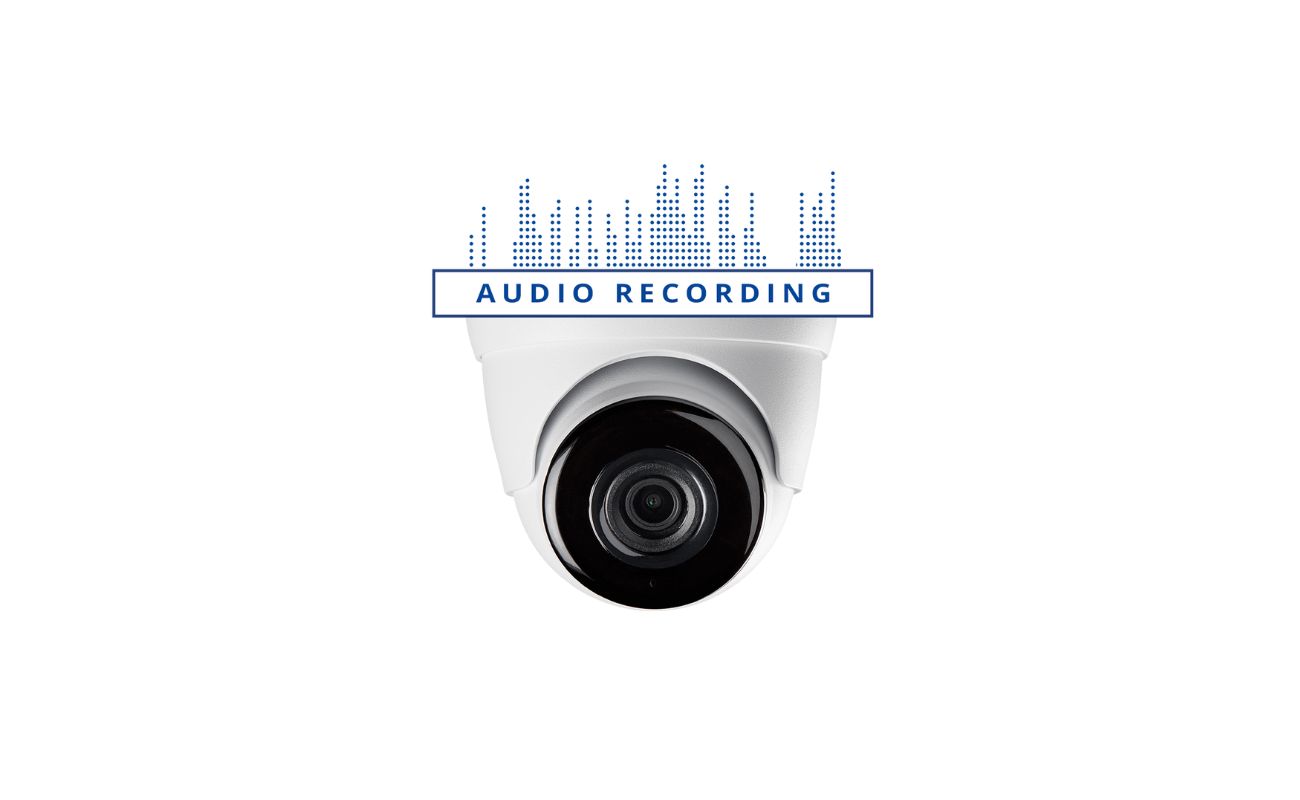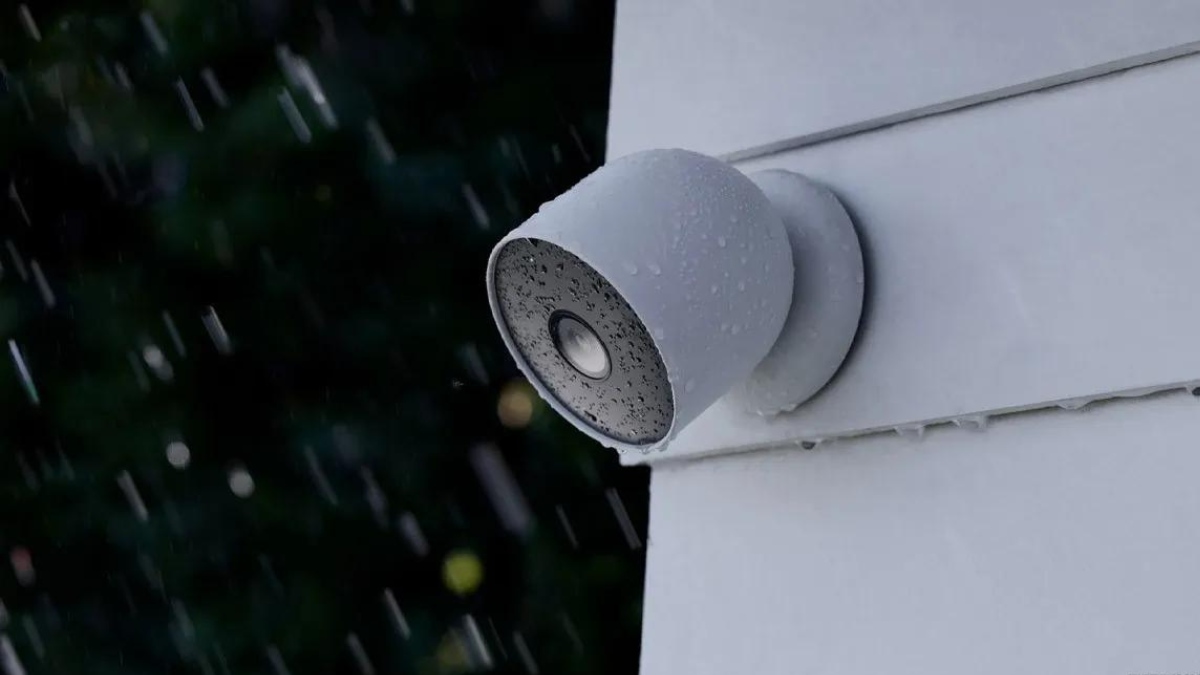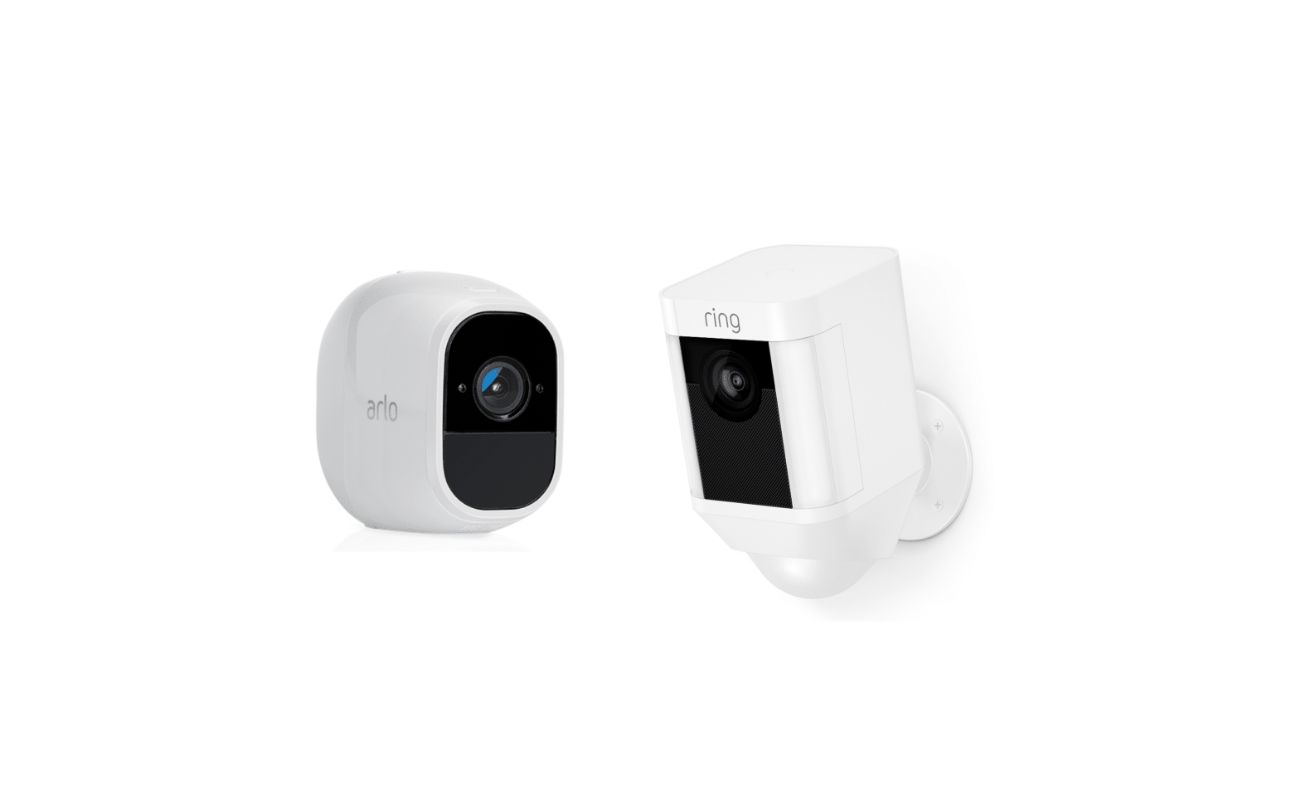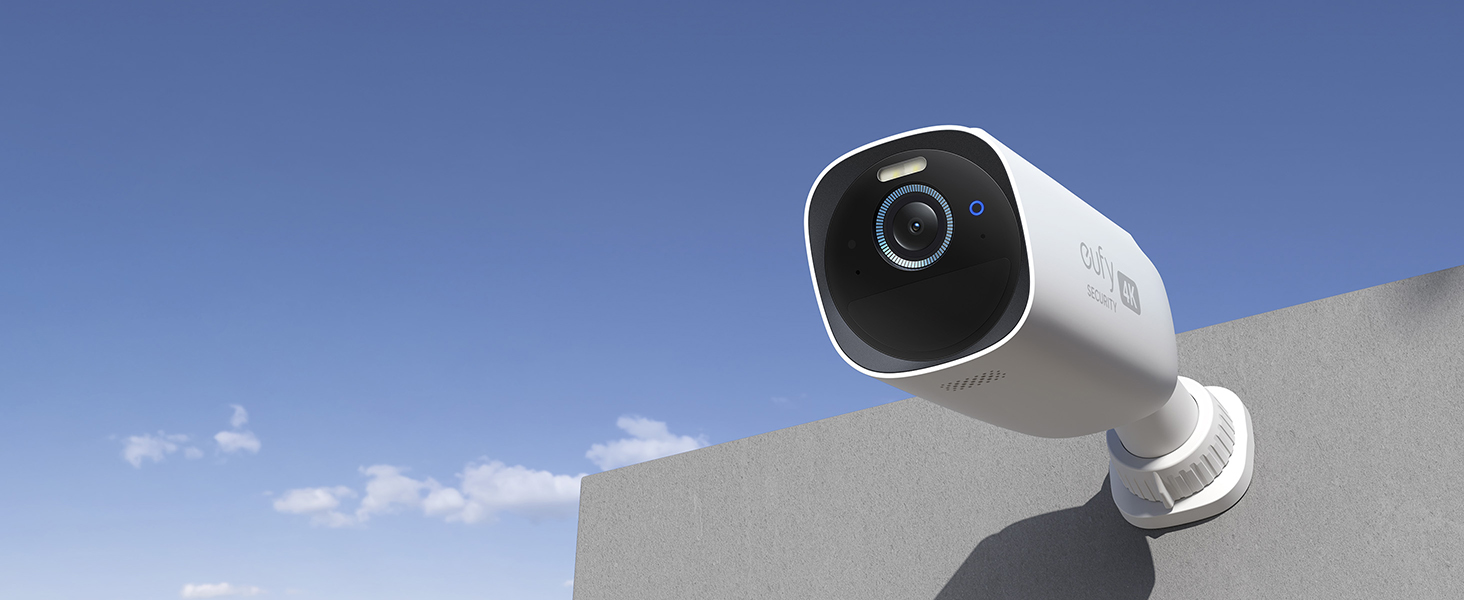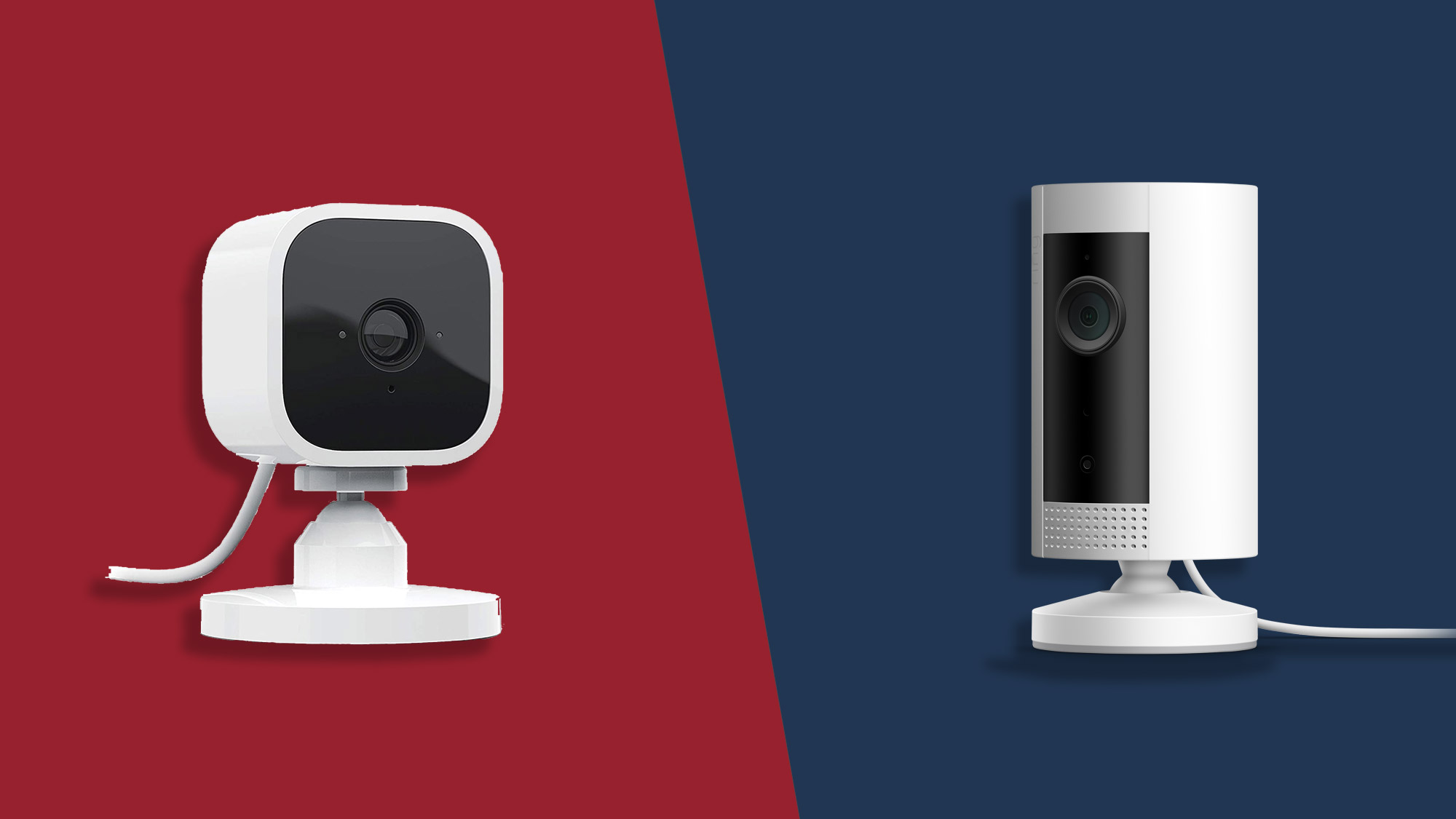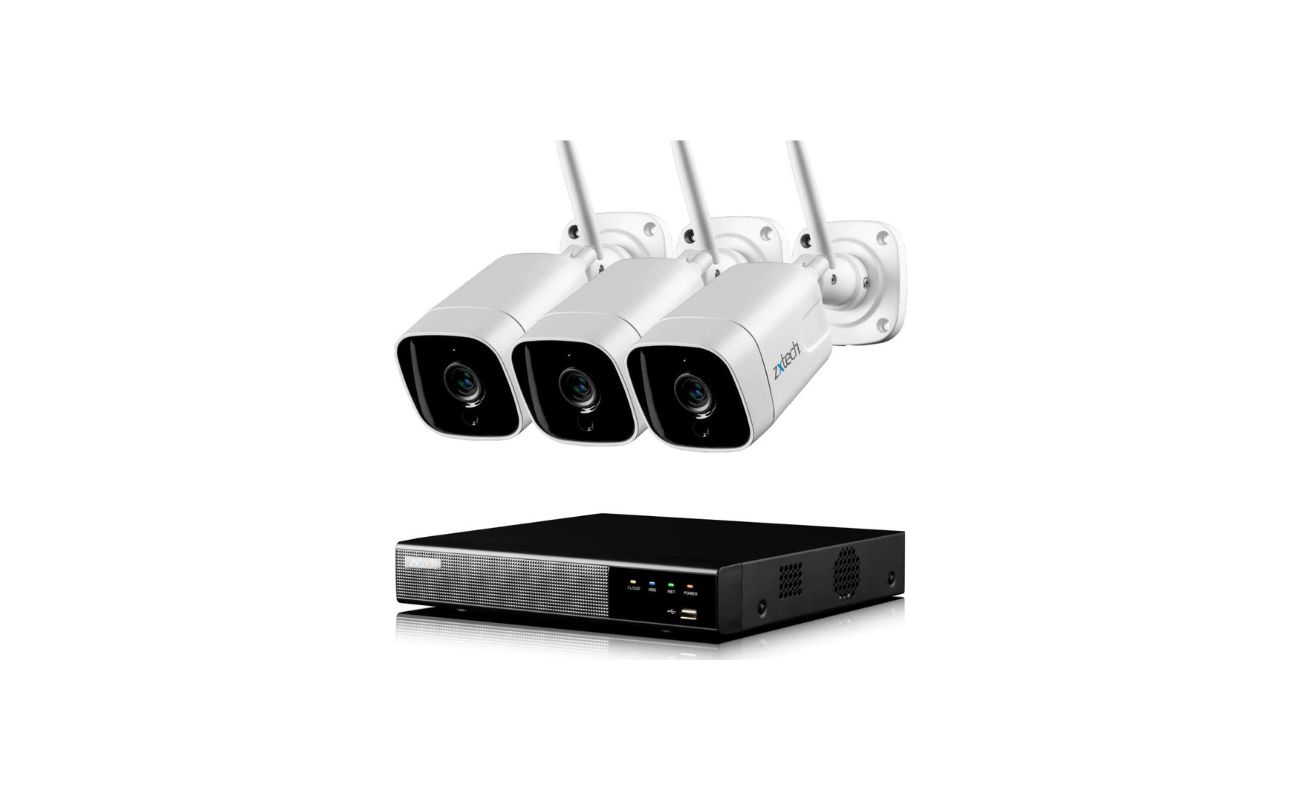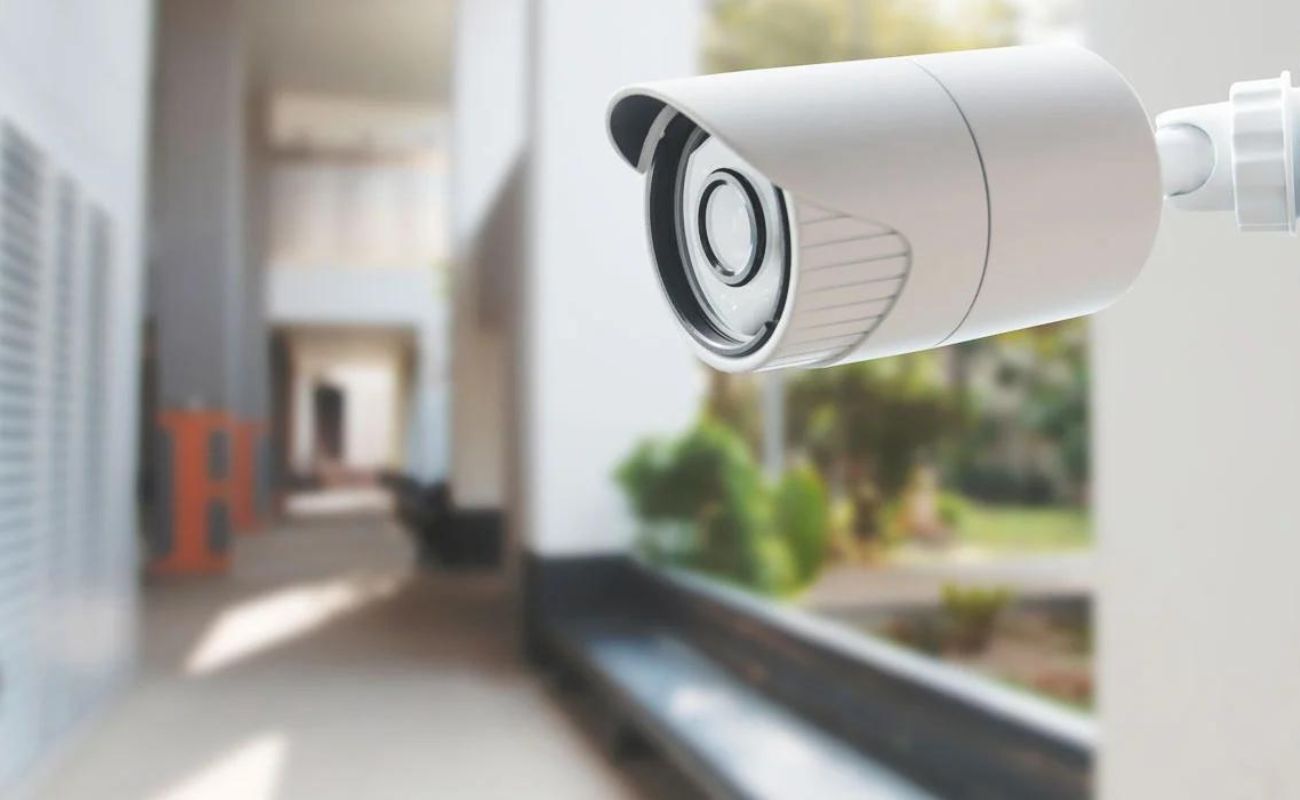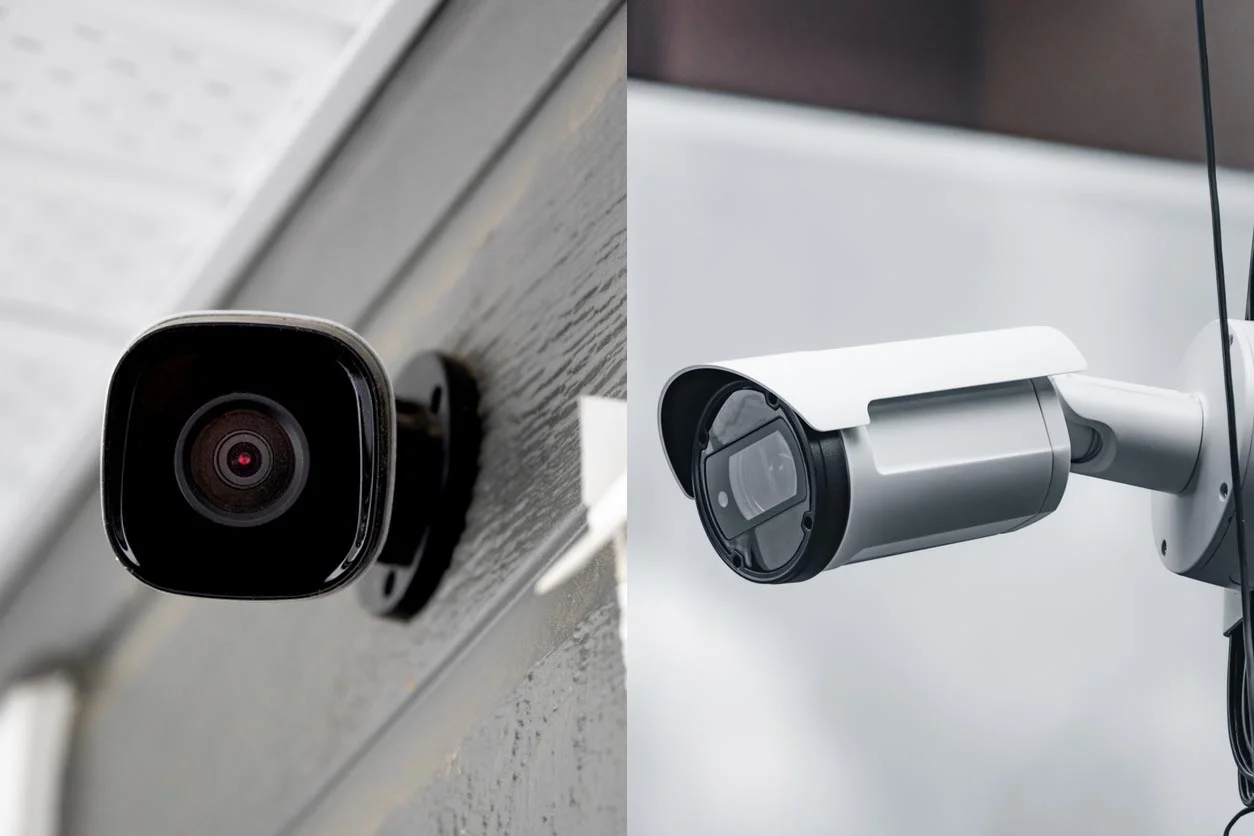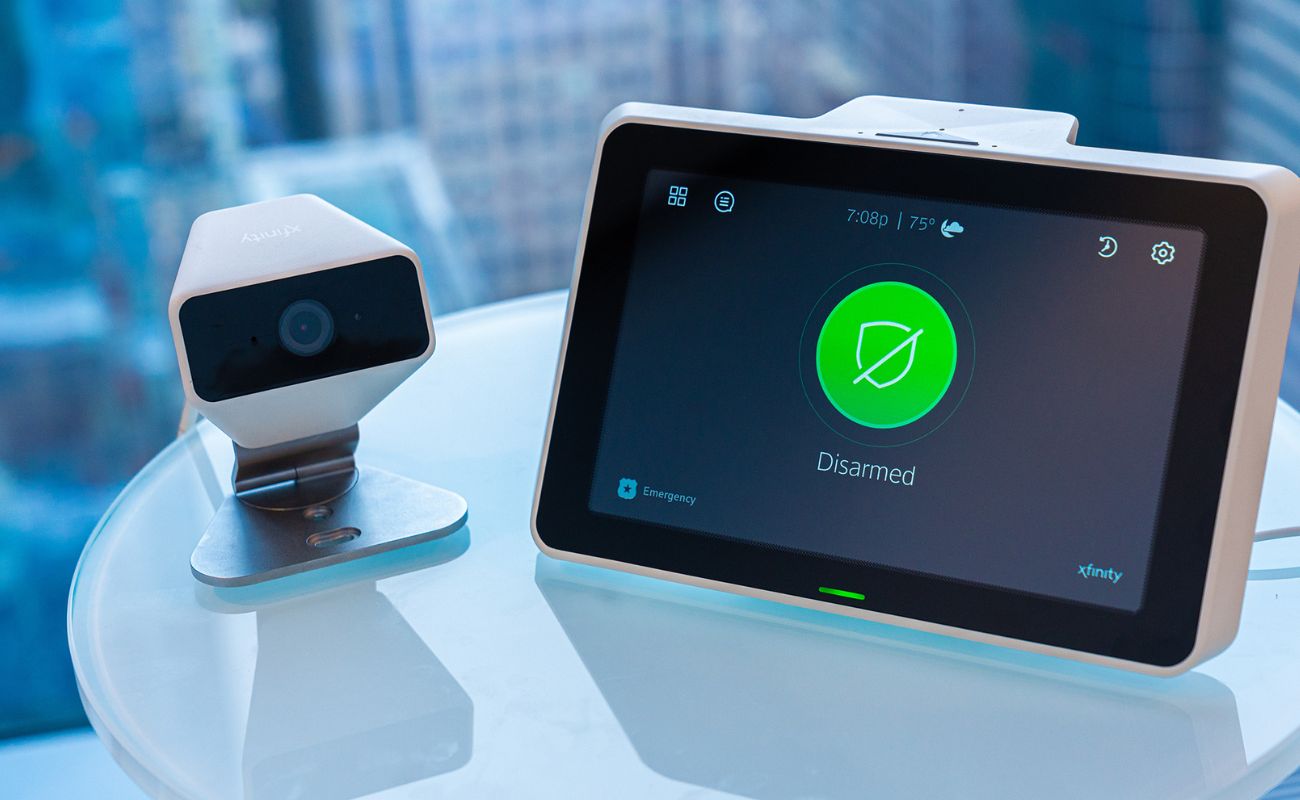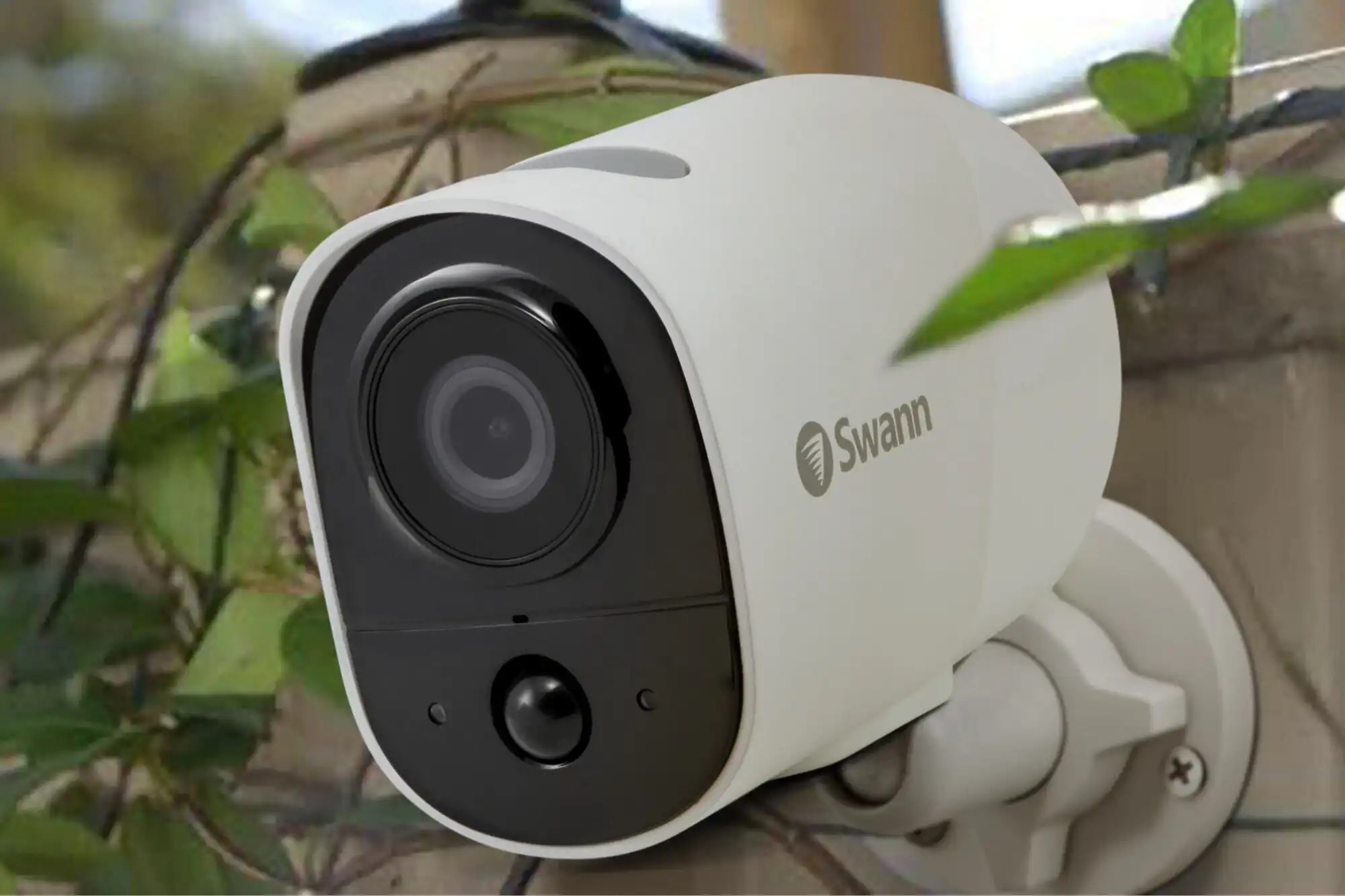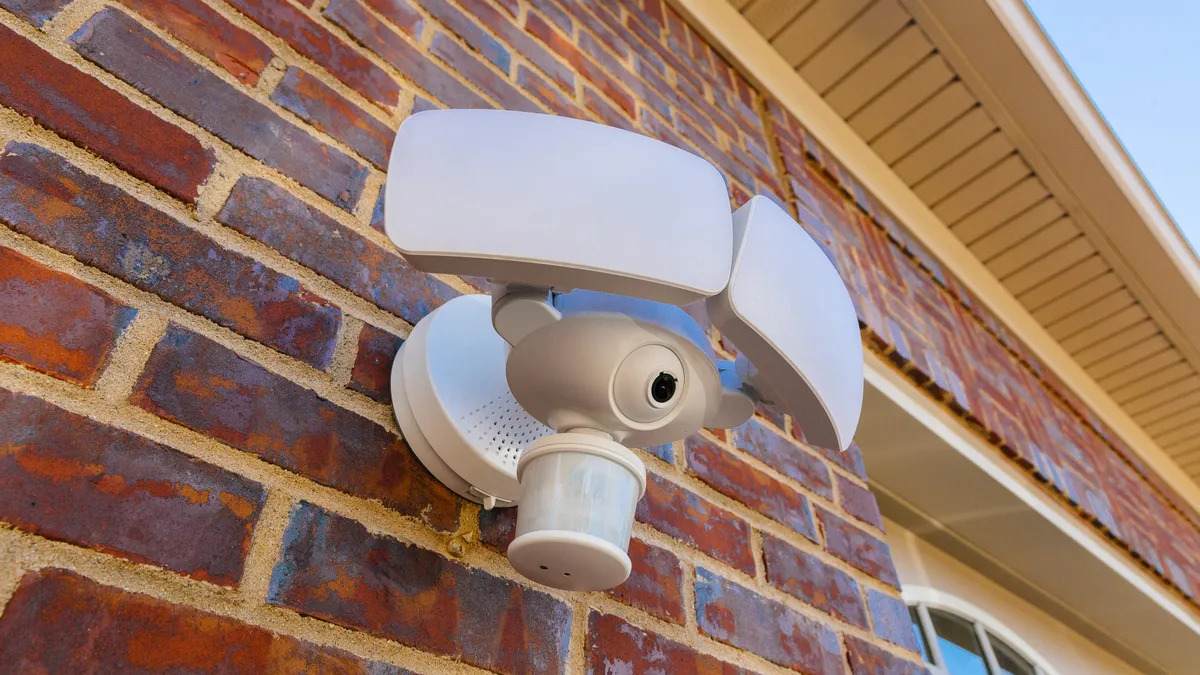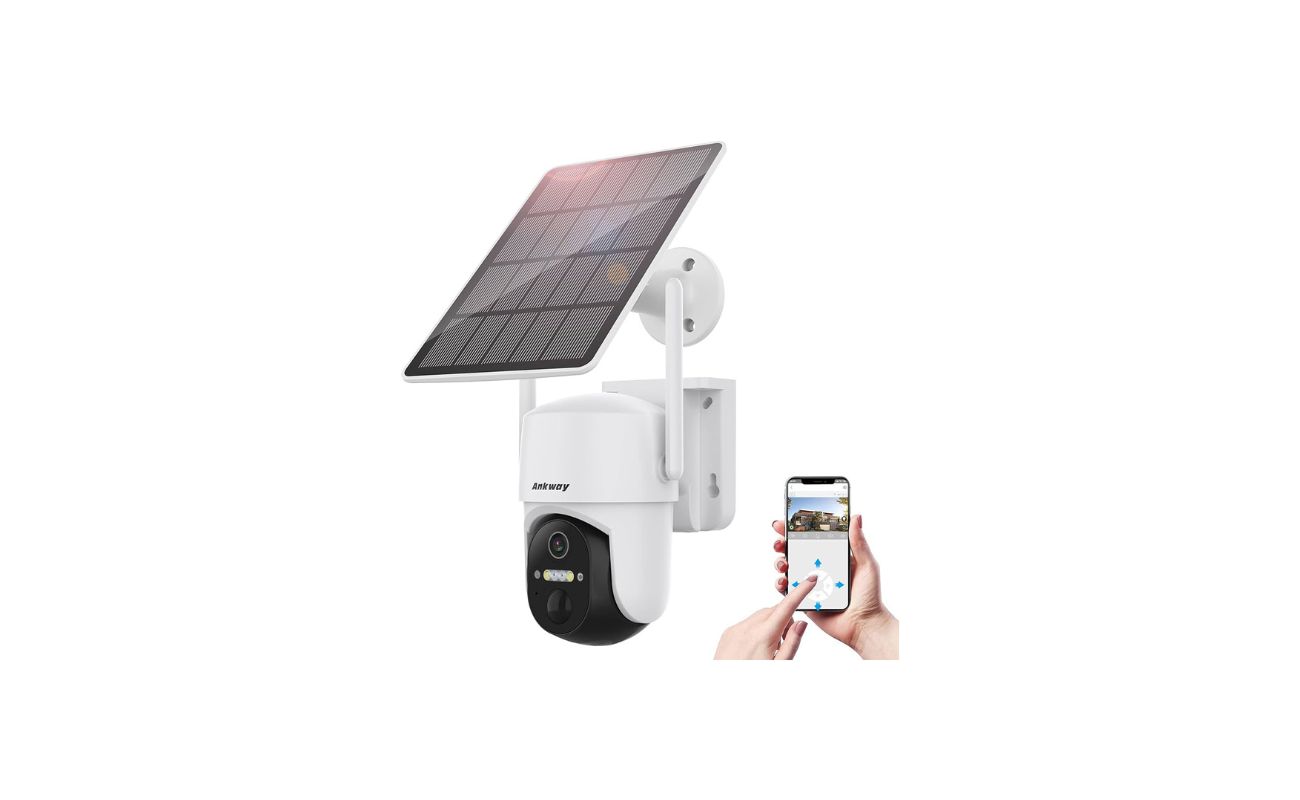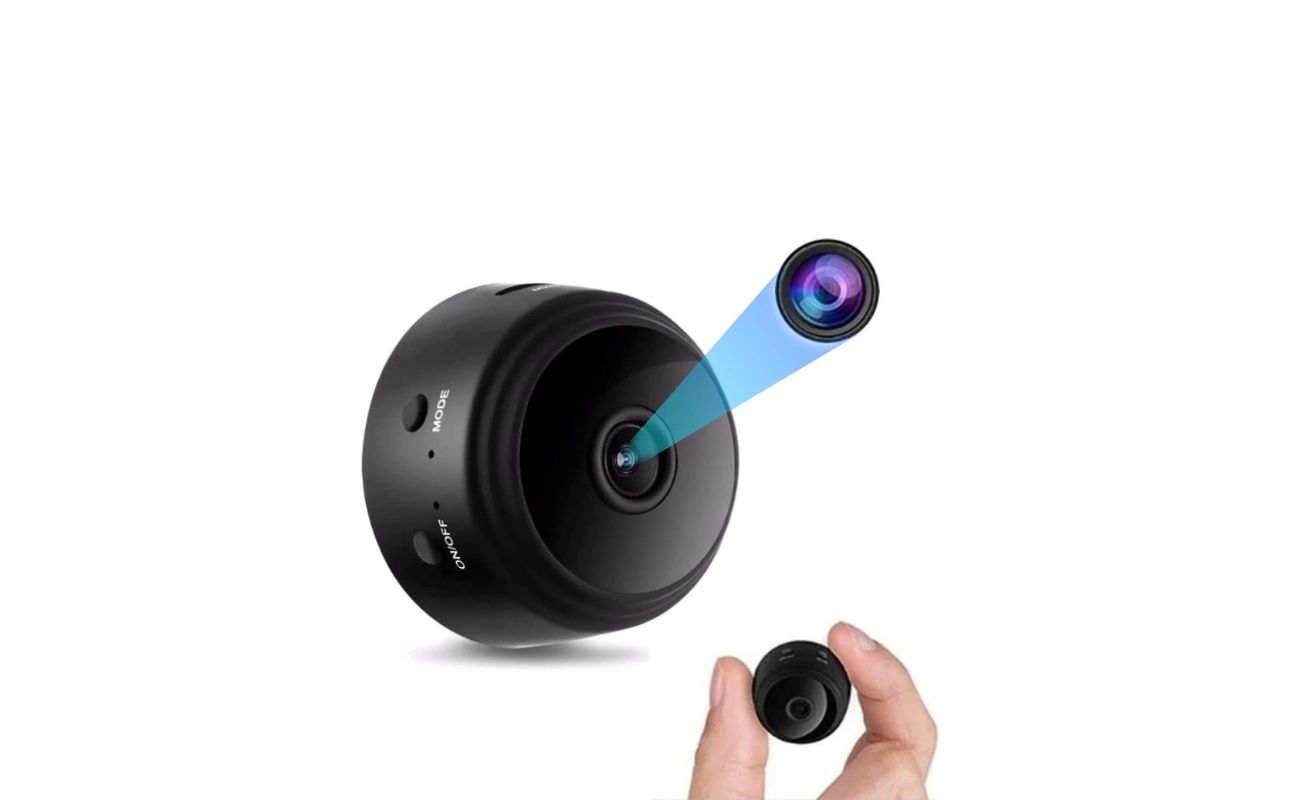Home>Home Security and Surveillance>Which Security Cameras Record 24/7
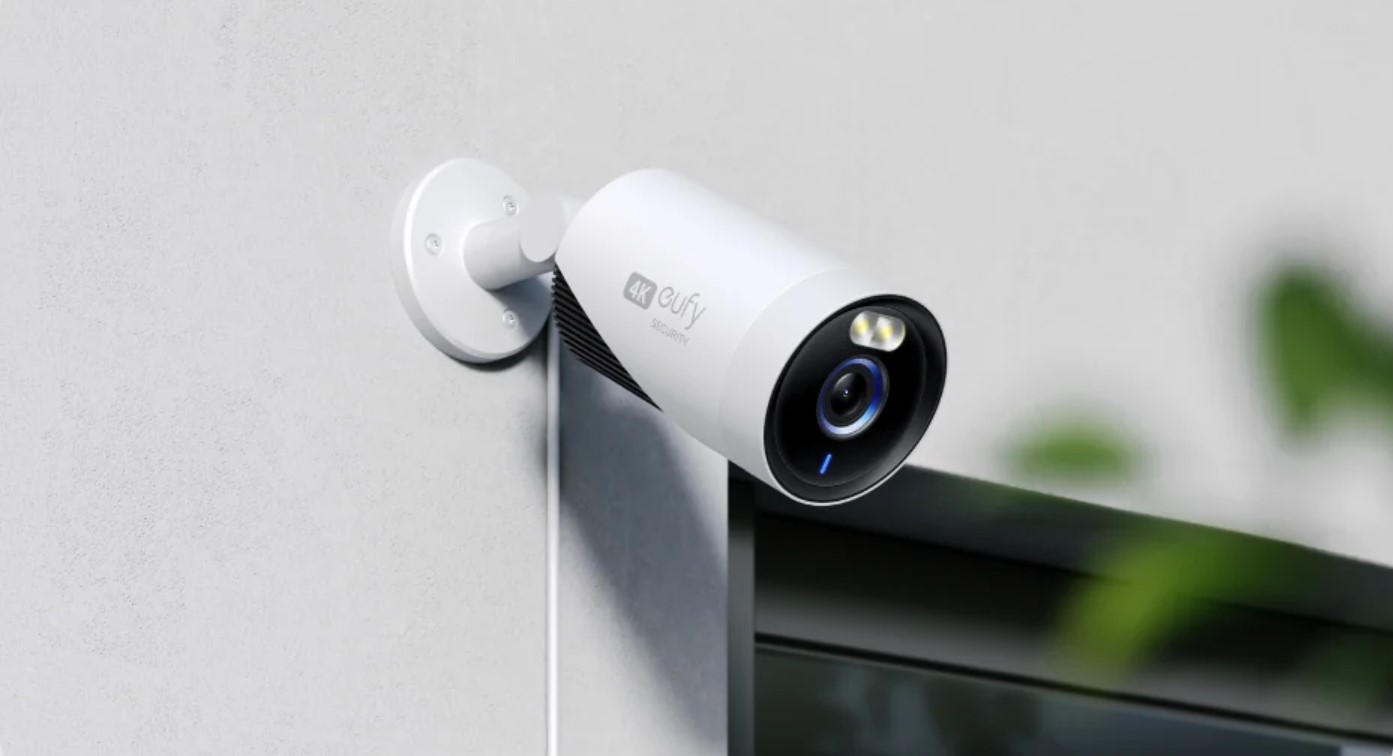

Home Security and Surveillance
Which Security Cameras Record 24/7
Modified: September 1, 2024
Ensure round-the-clock surveillance and protection with our home security and surveillance cameras. Trust us to record 24/7, providing you with peace of mind.
(Many of the links in this article redirect to a specific reviewed product. Your purchase of these products through affiliate links helps to generate commission for Storables.com, at no extra cost. Learn more)
Introduction
Securing your home and ensuring the safety of your loved ones is a top priority for any homeowner. In today’s technologically advanced world, one of the most effective ways to protect your home is by installing security cameras. These devices not only act as a deterrent to potential intruders but also provide crucial evidence in the event of any criminal activity. However, not all security cameras are created equal. If you’re looking for a surveillance system that offers round-the-clock monitoring, it’s important to choose cameras that can record 24/7.
When it comes to selecting security cameras for continuous recording, there are several factors to consider. From the type of camera to the storage options and power sources, each aspect plays a vital role in ensuring uninterrupted surveillance. In this article, we will delve into the world of security cameras that can record 24/7, equipping you with the knowledge needed to make an informed decision for your home security needs.
Key Takeaways:
- Choose security cameras with high resolution, night vision, and weather resistance for 24/7 recording. Consider wired, wireless, or IP cameras based on your needs and preferences.
- Ensure continuous power supply for your security cameras with options like AC outlets, PoE, batteries, solar power, or UPS. Select ample video storage capacity for retaining recorded footage for investigations and compliance.
Read more: How To Record Using Security Camera
Factors to Consider When Choosing Security Cameras
Before diving into the specific types of security cameras that offer 24/7 recording capabilities, it’s important to discuss the factors you should consider when making your selection. Here are some key considerations to keep in mind:
- Resolution: The resolution of the camera determines the clarity of the recorded footage. Opt for cameras with high resolution, such as 1080p or even 4K resolution, to capture clear and detailed images.
- Field of View: The field of view refers to the area that the camera can cover. Choose cameras with wide-angle lenses or ones that offer pan, tilt, and zoom functions for comprehensive monitoring of your property.
- Night Vision: If you want your security cameras to record 24/7, adequate night vision capabilities are essential. Look for cameras with infrared LEDs that can capture clear footage even in low-light or no-light conditions.
- Weather Resistance: If you plan to install outdoor security cameras, ensure that they are weather-resistant and can withstand harsh weather conditions, such as rain, snow, and extreme temperatures.
- Connectivity: Consider the connectivity options available for your security cameras. Wired cameras require physical connections, while wireless cameras use Wi-Fi or other wireless technologies for data transmission.
- Remote Access: Look for cameras that offer remote access capabilities, allowing you to view live or recorded footage from your smartphone, tablet, or computer anytime and anywhere.
- Storage Options: Determine how you want to store the recorded footage. Options include on-site storage using DVR or NVR systems, or cloud-based storage services.
- Budget: Set a budget for your security camera system and consider the cost of the cameras, installation, and any additional equipment or services required.
By taking these factors into account, you can narrow down your options and find security cameras that meet your specific needs and requirements. Next, let’s explore the different types of security cameras that can record 24/7.
Types of Security Cameras That Can Record 24/7
When it comes to security cameras that offer continuous recording, there are several types to choose from. Each type has its own advantages and considerations. Let’s take a closer look:
- Wired Security Cameras: Wired security cameras require physical connections to power and transmit video signals. These cameras are known for their reliability and uninterrupted performance. They are typically connected to a DVR (Digital Video Recorder) or NVR (Network Video Recorder) system for storage and playback of recorded footage.
- Wireless Security Cameras: Wireless security cameras use Wi-Fi or other wireless technologies to transmit video signals. They offer flexibility in terms of installation and can be easily moved or repositioned. However, they may be susceptible to signal interference or range limitations, so it’s important to ensure a stable and reliable Wi-Fi connection.
- IP Security Cameras: IP (Internet Protocol) security cameras are connected to your home network and can be accessed remotely. They offer high-resolution video recording and advanced features such as motion detection and facial recognition. They are commonly used in conjunction with NVR systems or cloud-based storage services.
- DVR (Digital Video Recorder) Systems: DVR systems are widely used with wired security cameras. They provide local storage for recorded footage and can support multiple cameras simultaneously. DVRs offer various storage capacities and recording options, including continuous recording, scheduled recording, or motion-triggered recording. The recorded footage can be easily accessed and reviewed on a monitor or via a remote viewing app.
- NVR (Network Video Recorder) Systems: NVR systems are designed to work with IP cameras. They offer centralized storage and management of video recordings. NVRs can support a large number of cameras and provide advanced features like remote access, motion detection, and video analytics. They often offer higher resolution and more flexible storage options compared to DVR systems.
- Cloud-Based Storage Options: Cloud-based storage services allow you to store your recorded footage securely in the cloud. This eliminates the need for on-site storage equipment and provides flexibility in accessing and managing your recordings from anywhere with an internet connection. Cloud storage services often offer subscription plans based on storage capacity and duration of storage.
Consider your specific needs and preferences when choosing the type of security camera that can record 24/7. Factors such as installation ease, scalability, storage capacity, and remote access capabilities are important considerations. Next, we’ll explore the power sources required for continuous recording.
Wired Security Cameras
Wired security cameras are a popular choice for homeowners who require continuous recording capabilities. These cameras are connected to a power source and video recorder using physical cables, ensuring a reliable and uninterrupted surveillance system. Here are some key features and considerations of wired security cameras:
- Reliability: One of the biggest advantages of wired security cameras is their reliability. With a physical connection, they are not susceptible to the signal interference or range limitations that can affect wireless cameras. This ensures a consistent video feed and minimizes the risk of missing any critical events.
- High Quality Video: Wired cameras typically offer higher video quality compared to wireless options. With the ability to transmit uncompressed video signals, they can deliver crisp and clear footage with greater detail. This is especially important when it comes to identifying faces or reading license plates.
- Power and Data Transmission: Wired cameras require two types of cables: a power cable to provide electricity and a coaxial cable or Ethernet cable to transmit video signals. Power over Ethernet (PoE) technology combines power and data transmission over a single cable, simplifying the installation process for PoE-compatible cameras.
- Storage Options: Wired cameras are commonly used in conjunction with DVR (Digital Video Recorder) systems. The DVR provides on-site storage for the recorded footage, which can be accessed and reviewed at any time. DVR systems offer various storage capacity options, allowing you to choose the amount of video data you want to store.
- Installation: Installing wired cameras may require professional assistance due to the need for running cables and making connections. However, once installed, they provide a secure and stable surveillance system that can monitor your property 24/7.
Despite their numerous advantages, wired security cameras do have some considerations to keep in mind. The installation process can be more complex than wireless options, and running cables may require drilling holes or concealing wires for a clean installation. Additionally, the fixed position of wired cameras may limit their flexibility in terms of repositioning them in the future.
Overall, wired security cameras are an excellent choice for homeowners who prioritize reliability and high-quality video. By ensuring a consistent power supply and a direct connection for data transmission, wired cameras provide an effective and long-term surveillance solution for recording 24/7.
Wireless Security Cameras
Wireless security cameras offer a convenient and flexible solution for homeowners who prefer a more streamlined installation process and the ability to easily reposition cameras. These cameras use Wi-Fi or other wireless technologies to transmit video signals, eliminating the need for physical cables. Here are some key features and considerations of wireless security cameras:
- Easy Installation: One of the biggest advantages of wireless security cameras is their easy installation process. Without the need for running cables or making physical connections, setting up wireless cameras can be a DIY project for many homeowners. This allows for quick and hassle-free installation.
- Flexibility: Wireless cameras offer the flexibility to be easily moved or repositioned whenever needed. This makes them ideal for renters or homeowners who wish to adjust their surveillance setup over time. Wireless cameras can also be installed in locations that are difficult to reach with wired cameras.
- Remote Access: Most wireless cameras come with mobile apps or software that allow you to access the live or recorded footage remotely. This means you can monitor your home and check the camera feeds from anywhere using your smartphone, tablet, or computer.
- Power Options: Wireless cameras are typically powered either by batteries or by plugging them into a power outlet. Battery-powered cameras offer flexibility in terms of placement, but require regular battery changes or recharging. Cameras that are plugged into a power outlet provide continuous power, ensuring uninterrupted recording.
- Signal Interference: Wireless cameras rely on a stable Wi-Fi connection to transmit video signals and communicate with the recording device or the cloud. However, they may be susceptible to signal interference or range limitations, especially if your home has thick walls or a weak Wi-Fi signal. It’s important to ensure a stable and reliable Wi-Fi connection for optimal performance.
Wireless security cameras offer convenience and flexibility, making them a popular choice for homeowners. However, there are a few considerations to keep in mind. The video quality of wireless cameras may be slightly lower compared to wired cameras due to the compression of video signals for wireless transmission. Additionally, battery-powered cameras require regular maintenance and may need more frequent charging or battery changes.
Overall, wireless security cameras provide an excellent solution for homeowners who prioritize easy installation and flexibility. With the ability to remotely access footage and the convenience of wireless connectivity, these cameras offer a versatile and convenient option for 24/7 recording.
Read more: How To Record Security Camera To PC
IP Security Cameras
IP (Internet Protocol) security cameras have gained popularity in recent years due to their advanced features and ease of use. These cameras use your home network to transmit and receive video footage, offering high-resolution recording capabilities and remote access. Here are some key features and considerations of IP security cameras:
- High Resolution: IP cameras are known for their high-resolution video recording capabilities. They can capture detailed images and videos, allowing you to clearly identify people, objects, and events. This makes them ideal for situations where you require precise and accurate surveillance.
- Powerful Features: IP cameras offer a range of powerful features such as motion detection, facial recognition, and advanced analytics. Some cameras can even send real-time alerts to your mobile device when suspicious activity is detected. These advanced features enhance the effectiveness of your security system.
- Easy Installation: Installing IP cameras is typically straightforward. They connect to your existing home network, eliminating the need for additional cables or complex setup processes. This makes it easier for homeowners to install and set up their own surveillance system.
- Remote Access: One of the key advantages of IP cameras is the ability to access the live or recorded footage remotely. With the help of mobile apps or software, you can view your camera feeds from anywhere using your smartphone, tablet, or computer. This provides peace of mind and allows you to keep an eye on your home even when you’re away.
- Scalability: IP cameras are highly scalable, allowing you to add additional cameras to your system as needed. You can easily expand your surveillance coverage by adding cameras to different areas of your home without any significant changes to your existing setup.
- Storage Options: IP cameras offer flexibility in terms of storage options. They can be connected to either a local Network Video Recorder (NVR) or a cloud-based storage service. NVRs provide on-site storage for recorded footage, while cloud-based storage services allow you to store and access your recordings securely online.
While IP cameras offer numerous advantages, there are a few considerations to keep in mind. These cameras rely on a stable home network and internet connection for proper functioning. If your network experiences frequent interruptions or poor connectivity, it may affect the reliability and performance of IP cameras. Additionally, some IP cameras may be more expensive compared to other types of security cameras due to their advanced features and capabilities.
Overall, IP security cameras provide a sophisticated and feature-rich option for homeowners who want high-resolution video recording and convenient remote access. With their easy installation process and advanced functionalities, IP cameras are a great choice for those seeking a modern and comprehensive surveillance solution for 24/7 monitoring.
Look for security cameras with “continuous recording” or “24/7 recording” features. These cameras are designed to record non-stop, providing constant surveillance footage.
DVR (Digital Video Recorder) Systems
DVR systems have long been a popular choice for homeowners who want to record and store footage from their security cameras. These systems provide a reliable and efficient method of recording and managing video data. Here are some key features and considerations of DVR systems:
- Local Storage: DVR systems offer on-site storage for recorded footage. They typically use a built-in hard drive to store video data, allowing you to keep a copy of the recordings within your premises. The storage capacity of DVRs can vary, ranging from a few terabytes to several terabytes, depending on the model.
- Continuous Recording: DVR systems offer the option of continuous recording, allowing you to capture and store footage 24/7. This can be valuable in situations where you need to monitor your property constantly and have a full record of events.
- Easy Playback: DVR systems provide an intuitive interface for video playback. You can easily search and review the recorded footage using specific dates, times, or events. Some DVRs also allow you to view multiple camera feeds simultaneously, making it convenient to monitor different areas of your property.
- Various Recording Modes: In addition to continuous recording, DVR systems offer other recording modes such as scheduled recording or motion-triggered recording. Scheduled recording enables you to specify certain times when you want the cameras to record, while motion-triggered recording saves storage space by only recording when motion is detected in the camera’s field of view.
- Compatibility: DVR systems are compatible with analog cameras, making them a suitable choice if you already have analog cameras installed. They can also work with IP cameras by using additional equipment such as encoders to convert the digital signal into an analog format for recording.
- Offline Storage: One advantage of DVR systems is that the recorded footage is stored locally, rather than relying on an internet connection or cloud-based storage. This ensures that even in the event of an internet outage or network failure, your recordings are still accessible.
While DVR systems offer many benefits, there are a few considerations to keep in mind. The storage capacity of DVRs is limited, so it’s important to choose a system that provides enough storage for your recording needs. Additionally, accessing the recorded footage remotely may require additional equipment or configuration, depending on the DVR system.
Overall, DVR systems are a reliable and efficient option for homeowners who prefer to store their recordings locally and have full control over their surveillance data. With their ease of use, various recording modes, and easy playback features, DVR systems provide an effective method for recording and managing video data for 24/7 monitoring.
NVR (Network Video Recorder) Systems
NVR (Network Video Recorder) systems have become increasingly popular in home security setups due to their advanced features and flexibility. These systems offer a convenient way to record and manage video footage from IP cameras. Here are some key features and considerations of NVR systems:
- Centralized Storage: NVR systems provide centralized storage for recorded footage. They use a dedicated hard drive or multiple hard drives to store video data. The storage capacity of NVRs can range from a few terabytes to several terabytes, depending on the model and configuration.
- High-Quality Video: NVR systems are designed to work with IP cameras, which offer high-resolution video recording. This means you can capture detailed and sharp images that allow for effective monitoring and identification of events or individuals.
- Scalability: NVR systems offer scalability, allowing you to easily add or remove cameras as needed. This makes it convenient to expand your surveillance coverage or adjust the system according to your changing needs.
- Remote Access: NVR systems enable remote access, allowing you to view the live or recorded footage from your IP cameras via a mobile app or software. This feature provides flexibility and convenience, allowing you to monitor your home and check camera feeds even when you’re away.
- Advanced Features: NVR systems often come with advanced features such as motion detection, facial recognition, and video analytics. These features enhance the effectiveness of your security system, making it easier to manage and analyze your video data.
- Flexible Recording Options: NVR systems offer various recording options, including continuous recording, scheduled recording, and motion-triggered recording. You can customize the recording settings for each camera to suit your specific needs and optimize storage usage.
- Integration with Other Devices: NVR systems can integrate with other devices and technologies, such as alarm systems or access control systems. This allows for a more comprehensive security solution that can be easily managed and controlled from a central interface.
While NVR systems offer numerous advantages, there are a few considerations to keep in mind. NVRs require a stable and reliable network connection for proper functioning. Poor network connectivity or internet outages can affect the performance and accessibility of the system. Additionally, the initial setup and configuration of NVR systems may require more technical expertise compared to simpler security camera setups.
Overall, NVR systems provide a flexible and feature-rich solution for homeowners who want to take advantage of the advanced capabilities of IP cameras. With their centralized storage, scalability, and remote access capabilities, NVR systems offer a comprehensive surveillance solution for 24/7 monitoring and management of your video data.
Cloud-Based Storage Options
Cloud-based storage has revolutionized the way we store and access data, including video footage from security cameras. Cloud-based storage options provide a convenient and secure way to store your recorded video data off-site. Here are some key features and considerations of cloud-based storage options:
- Remote Storage: Cloud-based storage allows you to store your recorded footage remotely on secure servers. This eliminates the need for on-site storage equipment and provides an extra layer of protection for your valuable video data.
- Easy Accessibility: With cloud-based storage, you can access your recorded footage from anywhere with an internet connection. Mobile apps or web portals enable you to view and manage your video data conveniently using your smartphone, tablet, or computer.
- Scalability: Cloud storage providers typically offer flexible storage plans, allowing you to choose the amount of storage you need. You can easily scale up or down depending on your recording requirements without the need for additional hardware installation or upgrades.
- Redundancy and Data Security: Cloud storage providers employ robust security measures to safeguard your video data. They often use encryption protocols and multiple data centers to ensure redundancy and protection against data loss. This gives you peace of mind knowing that your recordings are secure and accessible even in the event of physical damage or theft of your security cameras.
- Cost-Effective: Cloud-based storage options can be cost-effective in the long run. As you pay for the storage capacity you need, you can avoid the upfront costs of purchasing and maintaining on-site storage equipment. Additionally, cloud storage providers handle software updates and backups, saving you time and resources.
- Bandwidth Considerations: Uploading video footage to the cloud requires a stable and reliable internet connection. It’s important to ensure that your internet service provider offers sufficient upload speeds to handle the data transfer without interruption or delays.
- Subscription Plans: Cloud-based storage is typically offered as a subscription service, with different plans based on storage capacity and duration of storage. Consider your recording needs and budget when choosing a plan that meets your requirements.
While cloud-based storage options offer numerous benefits, there are a few considerations to keep in mind. Uploading and retrieving large amounts of video footage from the cloud can consume internet bandwidth and take time, especially with high-resolution recordings. Additionally, ongoing subscription costs for cloud storage should be factored into your overall budget for your security camera system.
Overall, cloud-based storage options provide a convenient and secure solution for storing and accessing your recorded video data. With their remote accessibility, scalability, and data redundancy, cloud storage services offer a reliable and flexible storage solution for 24/7 monitoring and protection of your valuable surveillance footage.
Power Sources for 24/7 Recording
When it comes to setting up security cameras for 24/7 recording, ensuring a continuous power supply is essential. There are several power sources to consider to ensure your cameras remain operational at all times. Here are some key power sources for 24/7 recording:
- AC Power Outlet: The most common power source for security cameras is a standard AC power outlet. Cameras that are directly plugged into an outlet can receive a constant supply of electricity without having to worry about battery life or charging. This is especially useful for wired cameras or cameras that are placed near an available power source.
- Power over Ethernet (PoE): Power over Ethernet is a technology that allows both power and data transmission over a single Ethernet cable. PoE eliminates the need for separate power cables and outlets for each camera, making it a convenient option for both wired and wireless cameras. PoE-enabled cameras can draw power directly from a PoE switch or injector, ensuring a reliable power source for 24/7 recording.
- Battery Power: Battery-powered cameras offer flexibility in terms of camera placement and installation. These cameras are equipped with built-in rechargeable batteries or use replaceable batteries. While battery-powered cameras provide the convenience of wireless installation, it’s important to monitor battery levels and ensure regular charging or battery replacements to maintain uninterrupted 24/7 recording.
- Solar Power: Solar-powered security cameras utilize energy from the sun to power the cameras and charge the batteries. These cameras are ideal for areas where access to AC power outlets or frequent battery changes is not feasible. Solar-powered cameras typically include a solar panel that collects and converts sunlight into electricity, providing a sustainable and reliable power source for continuous recording.
- Uninterruptible Power Supply (UPS): An uninterruptible power supply, commonly known as a UPS, is a backup power source that provides temporary power in the event of a power outage. UPS systems are typically used in conjunction with cameras that are directly connected to an AC power outlet. In case of a power failure, a UPS can keep the cameras running for a short period, ensuring uninterrupted recording until power is restored.
When choosing a power source for 24/7 recording, consider factors such as the camera’s power requirements, available power outlets, installation flexibility, and backup options. Additionally, it’s important to ensure that the chosen power source can handle the power demands of your cameras and provide a reliable and consistent power supply.
By carefully considering your power source options, you can ensure that your security cameras have the necessary power to record continuously and provide reliable surveillance for 24/7 monitoring of your property.
The Importance of Video Storage Capacity
When it comes to security cameras that record 24/7, having sufficient video storage capacity is crucial. The storage capacity determines how much video footage can be stored and retained for future reference. Choosing the right storage capacity is essential to ensure that you can access and review the recorded footage when needed. Here are some key reasons why video storage capacity is important:
- Length of Retention: The storage capacity determines how long you can store and retain recorded footage. Depending on your needs and preferences, you may want to keep video data for a few days, weeks, or even months. Consider the duration for which you want to retain the footage before it is overwritten or deleted.
- Investigation and Evidence: Having adequate storage capacity allows you to maintain a comprehensive record of events. In the event of a security incident, this recorded footage serves as valuable evidence for investigations, insurance claims, or legal proceedings. With longer retention periods, you can review past incidents or suspicious activities that may have occurred days or weeks ago.
- Timely Review: The size of the storage capacity impacts how quickly you can access and review the recorded footage. It’s essential to have enough storage to accommodate the amount of data being captured daily. Insufficient storage can lead to overwritten or lost footage, making it difficult to retrieve important events or incidents in a timely manner.
- Regulatory Compliance: Depending on your location and industry, there may be regulatory requirements regarding the storage and retention of recorded video data. Ensuring sufficient storage capacity helps you meet these compliance requirements without the risk of data loss or non-compliance penalties.
- Searching and Filtering: Large storage capacity allows for effective searching and filtering of recorded footage. With an extensive archive of video data, you can search for specific events, objects, or individuals using timestamps or metadata. This enhances efficiency in locating and analyzing relevant footage, saving time and effort in reviewing the recordings.
When determining video storage capacity, consider factors such as the number of cameras, the resolution of the footage, the frame rate, and the recording mode (continuous, motion-triggered, or scheduled). Each factor contributes to the overall storage requirements. It’s recommended to choose a storage capacity that meets your specific needs and allows for sufficient retention of video footage based on your monitoring objectives.
Overall, having adequate video storage capacity is essential for maintaining a comprehensive and reliable surveillance system. By ensuring sufficient storage, you can confidently record and retain video data, make timely reviews, meet regulatory compliance, and have valuable evidence for investigations or legal purposes.
Conclusion
Choosing security cameras that can record 24/7 is a critical step in ensuring the safety and protection of your home. By considering various factors such as resolution, field of view, night vision, weather resistance, connectivity, remote access, and storage options, you can select the cameras that best fit your needs. Whether you opt for wired security cameras for their reliability and high-quality video, wireless cameras for easy installation and flexibility, or IP cameras for their advanced features and remote access capabilities, each type has its own advantages and considerations.
If you prefer a local storage solution, DVR (Digital Video Recorder) systems provide on-site storage for recorded footage and easy playback options. On the other hand, NVR (Network Video Recorder) systems offer centralized storage, scalability, and advanced features for use with IP cameras. Alternatively, cloud-based storage options provide remote and secure storage, allowing for convenient access to recorded footage from anywhere, anytime.
Power sources play a crucial role in 24/7 recording, and options such as AC power outlets, power over Ethernet (PoE), battery power, solar power, and uninterruptible power supplies (UPS) ensure a continuous power supply for your cameras. Additionally, having sufficient video storage capacity is essential for storing and retaining recorded footage for investigations, evidence, compliance, and timely review.
In conclusion, selecting the right security cameras that can record 24/7 and making informed choices about power sources and video storage capacity are key to establishing a robust and reliable home security system. By considering your specific needs, preferences, and budget, you can create a surveillance setup that provides continuous monitoring and peace of mind for you and your loved ones.
Frequently Asked Questions about Which Security Cameras Record 24/7
Was this page helpful?
At Storables.com, we guarantee accurate and reliable information. Our content, validated by Expert Board Contributors, is crafted following stringent Editorial Policies. We're committed to providing you with well-researched, expert-backed insights for all your informational needs.
